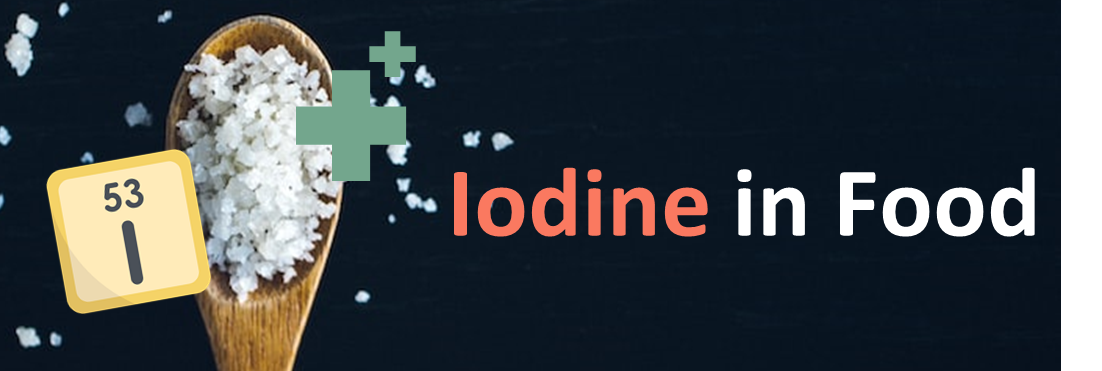Iodine in Food
Iodine is an essential micronutrient required for thyroid hormone synthesis to support growth and development. Persistently low iodine intake will result in iodine deficiency or even damage to the developing brain and other harmful effects known collectively as iodine deficiency disorders (IDDs).
The best way of preventing micronutrient malnutrition is to ensure consumption of a balanced diet that is adequate in every nutrient. On the other hand, the World Health Organization (WHO) recommends that an appropriate food fortification programme can also be part of a comprehensive food-based strategy for combating micronutrient deficiencies.
Consumption of Iodine-rich Foods
Human body needs only a small amount but regular daily intake of iodine (see WHO recommended iodine intake). When ingested in large amounts, iodine is readily excreted through the kidneys into the urine. While excessive iodine intake for a long time may disrupt the thyroid gland's normal functions, healthy adults can safely tolerate an intake up to 1,000 μg/day.
The public is advised to include foods that are rich in iodine in their dietary choice and take precautions to reduce iodine loss as iodine may dissolve in water during cooking. To retain its maximum amount, try to steam or stir-fry foods with little oil, and cook clean crustaceans intact.
| Foods rich in iodine | Iodine (μg/kg) |
|---|---|
| Dried kelp and laver | 8,900 – 2,600,000 |
| Seaweed snack and nori sheet for sushi | 6,400 – 38,000 |
| Shellfish and marine water fish | 32 – 2,100 |
| Dairy products | 40 – 1,400 |
Iodised Salt
Iodised salt has been recognised as the most convenient and most effective vehicle for the administration of supplemental iodine, the WHO promotes the Universal Salt Iodisation (USI) to prevent and control IDDs. The addition of iodate or iodide to salt does not affect the taste or smell of the salt or foods containing iodised salt, and therefore consumer acceptability is high.
Many brands of salts have iodised and non-iodised counterparts. Check their food labels (e.g. brand name and ingredient list) for any indication of iodine being added, such as the words "iodi-" (e.g. iodised, iodized, iodide, iodine), "ioda-" (e.g. iodated, iodate), "laver", "alga", "kelp", "seaweed", etc.
Guides for Food Businesses
Advice to the Public
Extended readings on iodine and health
- Iodine in Food
- Dietary Iodine Intake in Hong Kong Adults
- Have You Taken Enough Iodine?
- Department of Health – Iodine Survey
- Department of Health - Do You Have Adequate Iodine?
- Department of Health - Population Health Survey 2020-22 (Thematic Report on Iodine Status)
